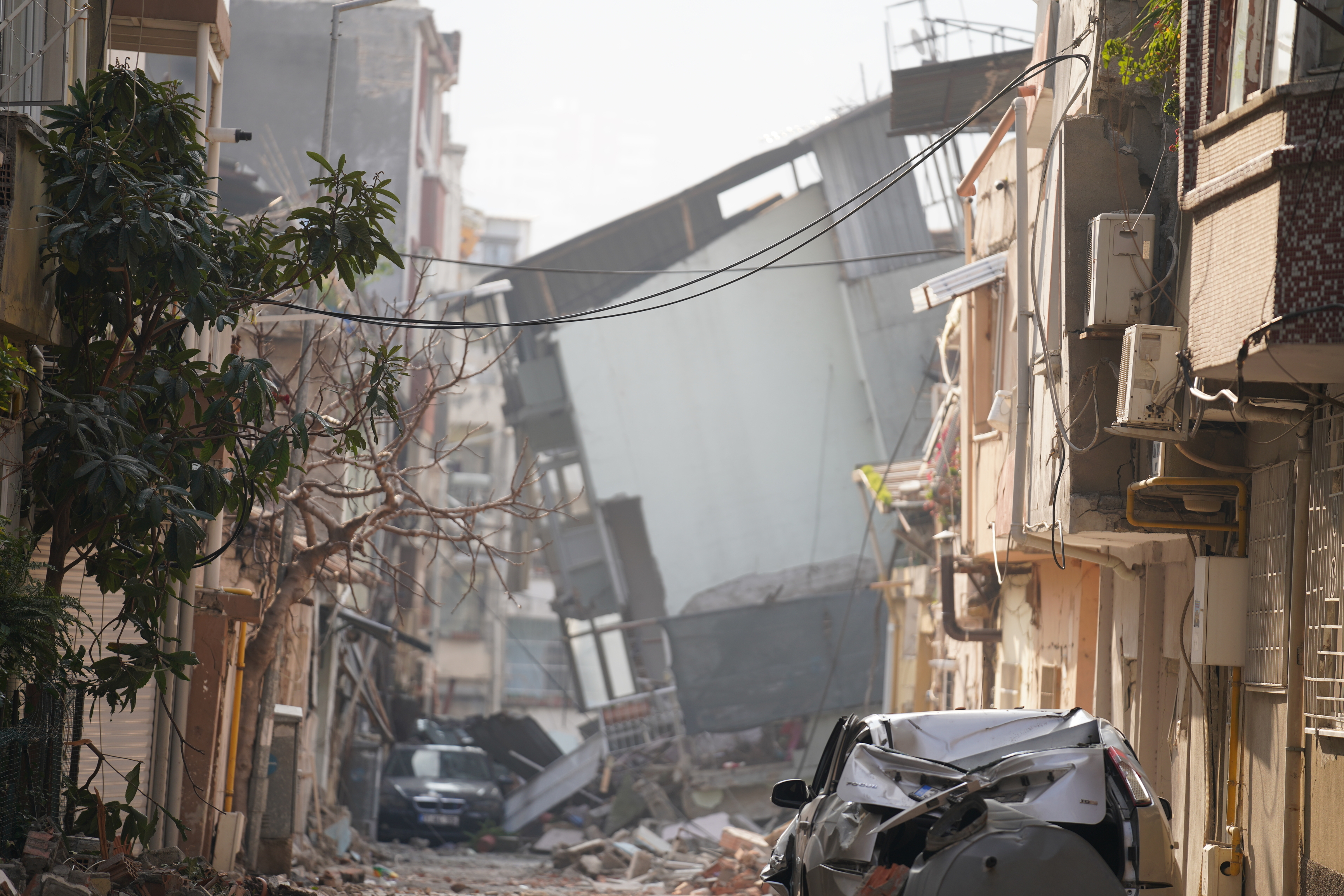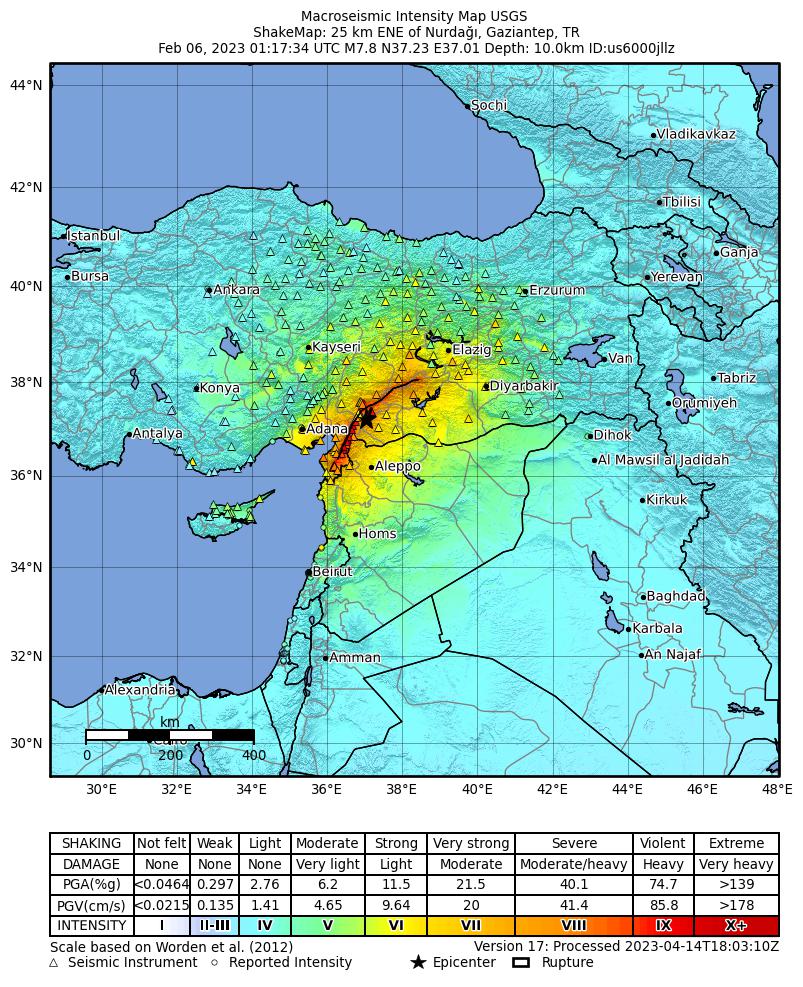Login to access subscriber-only resources.
Call for Papers - Special Issue on the Turkey and Syria Earthquakes of February 2023
CALL FOR PAPERS
Analysis of Pre- and Post-Disaster Management and Recovery for the Turkey and Syria Earthquakes of February 2023
The Journal of Emergency Management (JEM) Editorial Review Board invites the submission of original research, papers, and case studies supporting a special issue titled: “Analysis of Pre- and Post-Disaster Management and Recovery for the Turkey and Syria Earthquakes of February 2023.” This special issue is led by Dr. Derin Ural, Disaster Researcher, Professor in Practice, and Associate Dean of Student Affairs, College of Engineering, University of Miami, Coral Gables, Florida and our Editor-in-Chief, Dr. William L. Waugh, Jr.
On February 6, 2023, a powerful earthquake measuring 7.8 on the Richter scale struck south-central Turkey and northern Syria. This seismic event, was followed later in the day, at 1:24 pm, by a second earthquake measuring 7.5 in magnitude, with the epicenter located in Elbistan City. The impact of these earthquakes extended far beyond Turkey and Syria, with reports of tremors being felt as distant as Cyprus, Greece, Jordan, Lebanon, Iraq, Georgia, Armenia, Egypt, and Israel.
These devastating series of earthquakes have resulted in a tragic loss of life, with the death toll reaching over 60,000. The widespread destruction caused by the seismic activity has left more than 150,000 buildings in a state of collapse or severe damage, necessitating their demolition. Hundreds of thousands of structures have sustained medium to light damage. The magnitude of the catastrophe is further emphasized by the estimated 500,000 housing units within the collapsed and heavily-damaged buildings, highlighting the pressing need for emergency housing to support the over one million displaced victims. Infrastructure and lifelines reported failure and disruption.
As we reflect on the devastating earthquakes that struck Turkey and Syria in February 2023, our aim is to compile a comprehensive overview of the event and its aftermath. This special issue seeks to encompass a range of topics, including research efforts, pre-earthquake preparations, post-disaster response, mitigation strategies, and recovery initiatives. By examining both the shortcomings and successes surrounding this catastrophic seismic event, we strive to present a thorough analysis of the lessons learned.

This special issue will provide the latest insights into the earthquake's impact and how these lessons can contribute to mitigating the human, built environment, economic and social consequences tied to earthquakes worldwide.
We invite contributions from researchers, practitioners, and experts in various relevant disciplines to share their insights, research findings, and practical experiences related to the Turkey and Syria earthquakes. By collectively exploring the complexities of this seismic event, we aim to provide a comprehensive resource that supports evidence-based decision making and fosters greater preparedness, response, and resilience in the face of future earthquakes.
Journal of Emergency Management invites academics and professionals in private and public organizations to submit papers for this special issue and suggests the following partial list of topics for submission:
■ Emergency Response and Management: Analyzing the effectiveness of emergency response and management systems in the immediate aftermath of the earthquakes, including coordination among different stakeholders.
■ Seismic Hazard Assessment: Evaluating the seismic hazard and risk in the affected region before and after the earthquakes.
■ Environmental Impacts and Mitigation: Assessing the environmental impacts of the earthquakes, including soil and water contamination, and exploring mitigation measures.
■ Urban Planning and Land Use: Exploring the impact of urban planning and land-use policies on vulnerability to earthquakes and strategies for mitigating future risks.
■ Post-Earthquake Damage Assessment: Evaluating methodologies and technologies for rapid and accurate post-earthquake damage assessment, including remote sensing and geospatial techniques.
■ Social and Psychological Impacts: Investigating the social and psychological effects of the earthquake on affected communities, including trauma, displacement, and community resilience.
■ Public Awareness and Education: Examining public awareness campaigns, educational programs, and initiatives aimed at improving earthquake preparedness and response.

■ Economic Impacts and Recovery: Analyzing the economic consequences of the earthquakes on local, national, and regional economies and exploring strategies for economic recovery.
■ Community-Based Approaches to Recovery: Examining community-based initiatives and strategies for long-term recovery, community empowerment, and sustainable development in the aftermath of the earthquake.
■ Emergency Management Standards: Reviewing best practices for emergency management standards, including local governments and search and rescue teams, similar to the EMAP system in the United States.
■ International Collaboration and Assistance: Assessing the role of international collaboration, donation management and assistance in supporting the earthquake-affected region, including case studies of successful collaborations.
■ Building Codes and Infrastructure Resilience: Assessing the performance of buildings and infrastructure in the affected area and examining the role of building codes in promoting resilience.
■ Geotechnical Considerations: Investigating the geotechnical aspects of the earthquakes, such as soil liquefaction, slope stability, and site amplification effects.
■ Retrofitting and Reconstruction Strategies: Reviewing retrofitting techniques and reconstruction strategies to enhance the resilience of existing buildings and infrastructure.
■ Lifeline Analysis: Reviewing performance of lifelines (water, power, communication, transportation, wastewater) and providing lessons learned.
■ Lessons Learned and Best Practices: Identifying lessons learned from the earthquakes and highlighting best practices in earthquake preparedness, response, and recovery.
■ And More!
Submission details: To submit a manuscript, please visit www.emergencymanagementjournal.com and use the Manuscript Submission link on the journal’s website. When you submit your paper, please make sure you select the “Special Issue on Turkey and Syria Earthquakes” in the Section/Category of the General Info tab to designate it for this special issue.
Review Process: We will conduct a quick initial review of submissions to assure a fit with the type of articles published in this special issue.
A full double-blinded peer-review will follow. If you want to be considered for the pool of reviewers for this special issue, please send an email of interest and your CV or short resume to jem@pnpco.com.
Manuscript Submission and Information: Author information and manuscript submission is available on the Journal of Emergency Management Manuscript Submissions page located here: https://wmpllc.org/ojs/index.php/jem/manuscriptsubmission
Deadlines: Manuscript submissions will be accepted through February 29, 2024.
Article Types: We will review articles across the spectrum including original papers, research, best practices, creative solutions, brief communications, short reviews of existing programs, as well as creative solutions. Additional documented modalities for managing the topics above will be reviewed with the goal of sharing useful cutting-edge tools to improve and/or address emergency management of earthquakes through better response, risk mitigation, and loss prevention.
Article Length: Our traditional article length limit is 3,500 words. We will address length limitations on a per article basis. Please email us.
Additional Media Formats: We will accept non-paper based submissions (video, powerpoint, etc) as long as they include the standard JEM abstract format, all citation details, and all rights are cleared and assignable. Please contact our office for more details.
Help: Questions may be directed to the email above or to our offices at 781-899-2702 Ext. 114 or 108, Monday - Friday, 9 am-4 pm EST.
Publication: Early Q2 2024 - for initial online, print version TBD, Print copies available for purchase.
Distribution: Extended nationwide distribution, standard international distribution - Print, online, and ejournal formats
Advertising: Limited advertising will be accepted for this special issue - reserve early. Email us for details.

